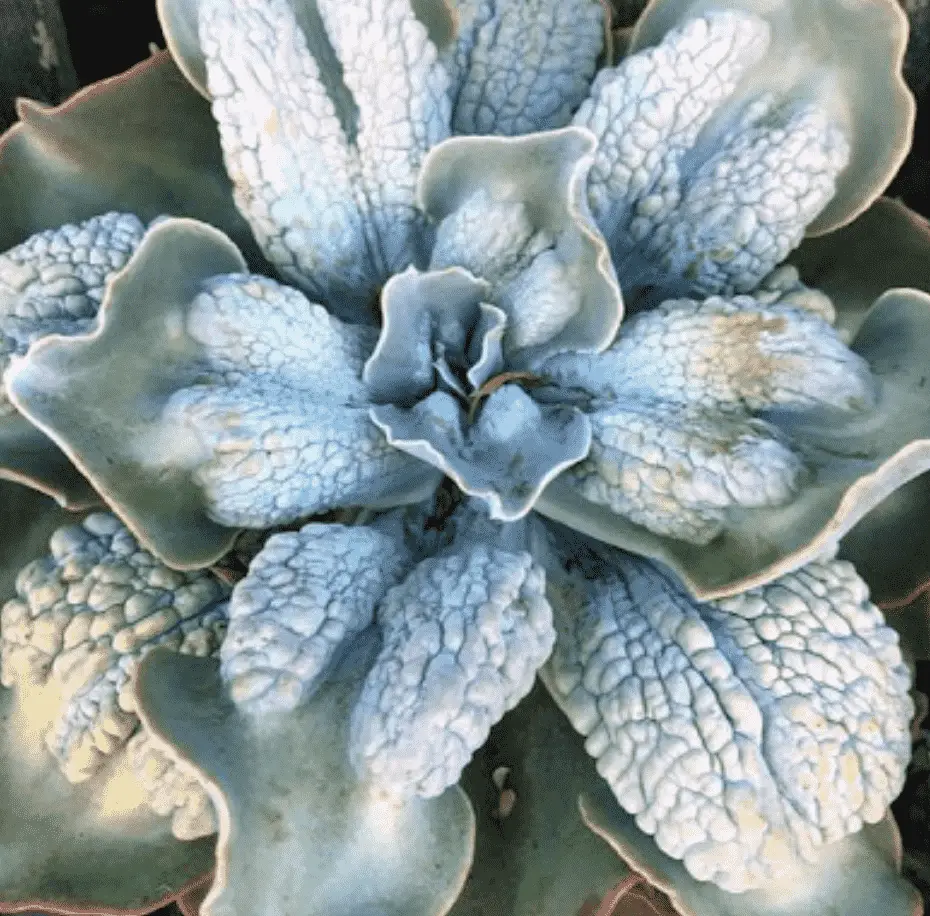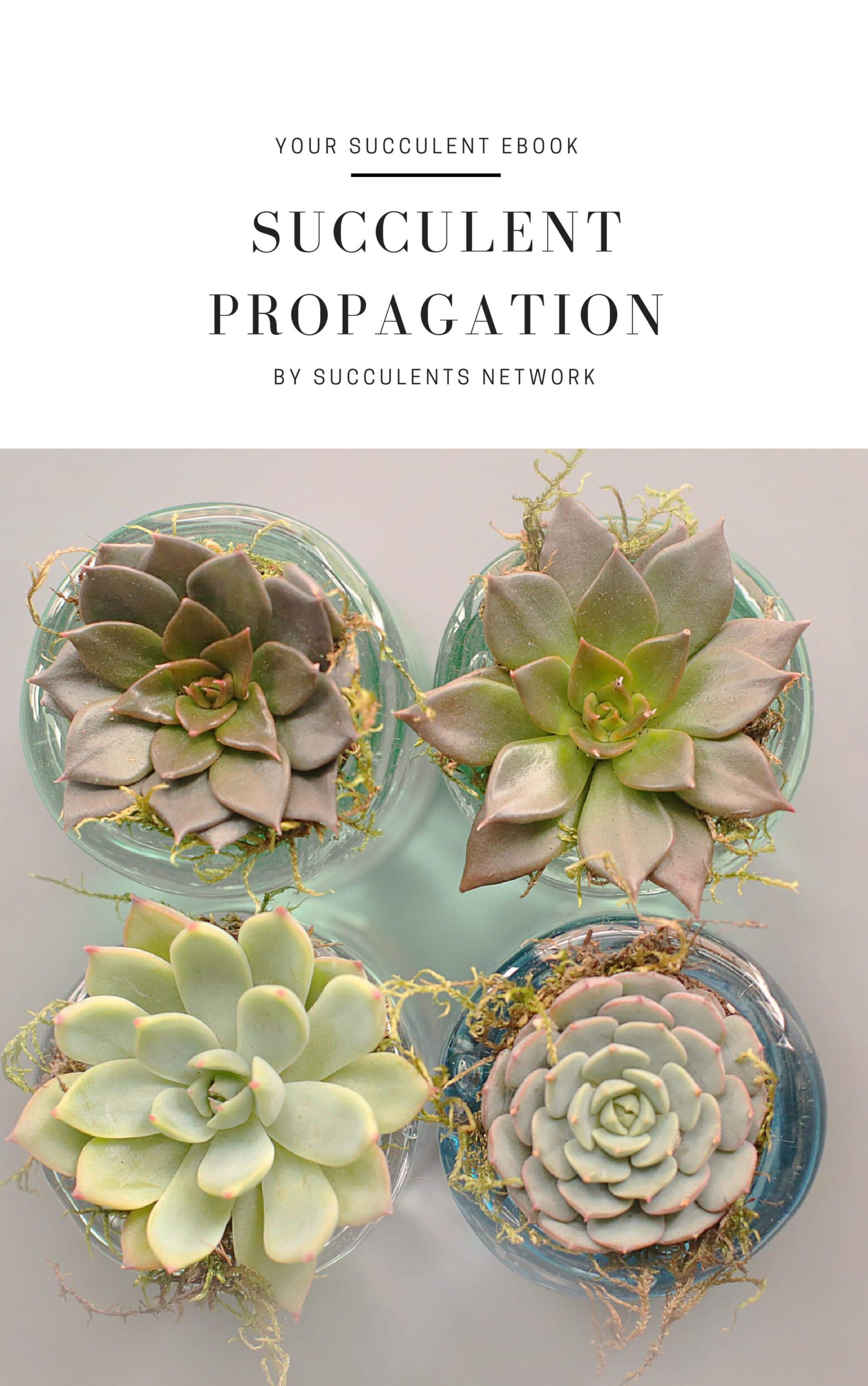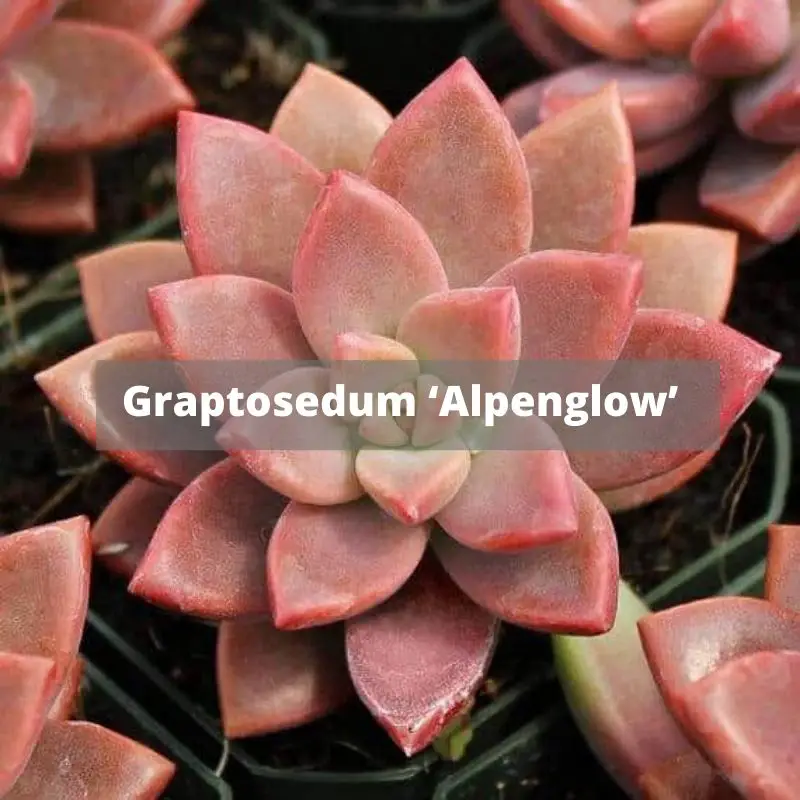
Picture via succulents.today
Basic Info
Echeveria is commonly known as the ‘Barbillion’. The plant is often confused with the Echeveria ‘Etna’ the only exception is that this plant grows larger. As the plant matures you can expect it to reach up to around 45 cm (18″) in diameter. The main feature of the succulent are the green leaves that often feature an ugly white bump on the leaves.
Scientific Classification
Family: Crassulaceae
Subfamily: Sedoideae
Tribe: Sedeae
Genus: Echeveria
Care and Propagation Information
Watering
Echeveria ‘Barbillion’ can be quite beautiful when it is well-taken care of. This succulent type needs typical watering as the other succulents. The watering method is very important to keep your Barbillion healthy. It should not sit on the water, and an excess amount of water should be avoided. The best way of watering is soak and dry method this succulent. Yet, the succulent should be controlled to avoid overwatering.
General Care for Echeveria ‘Barbillion’
This succulent type is a rare one which blooms in the spring. When it blooms, you will see the flower. It is a nice addition to your collection of plants especially if you have it displayed in a beautiful pot.
This page contains affiliate links.
Quick Facts:
- Prefers full sun
- Can be grown outdoor
- Grows up to 45 cm (18″) wide
- Can die easily if overwatered see: How to Water Succulent Plants
- Does not handle cold well
- Prefers Zone 9b-11b -3.9 °C (25 F)
- Best propagated by leaves, cuttings, or seeds
- features a colorful rosette
Where to Plant
Echeveria ‘Barbillion’ succulents need strong light. When planting this succulent type in a garden, make sure it gets sunlight. Full to partial sun is the best for its growth. It is better to grow outdoor rather than indoor.
This type of succulent prefers a warm climate. It can survive at zone 9b-11b which is around -3.9 °C (25 °F). If you live in a cold area, it is better to plant Barbillion in an indoor environment. As long as it gets enough sunlight, the plant will grow happily.
When selecting what pot to use be sure that you understand the difference between the material used (See our guide on how to pick the best plant pot).
How to Propagate Echeveria ‘Barbillion’
Barbillion can be propagated by leaves, seeds or cuttings. This succulent type does not require repotting often. Of course, the first-time repotting is essential when it is bought from the store. You can learn all about How To Repot Succulents in our guide.
Like all the other succulent types, a well-drained soil mixture is essential. If you want to know about well-drained soil mixtures, check How to Prepare Well-drained Soil for Succulent Plants.
How to Propagate Echeveria ‘Barbillion’ By Leaves
When propagating Barbillion with leaves. (Learn How to Propagate Succulents in detail here.) You should get a leave carefully from the mother plant. It should be a healthy leave that has no part left on the stem. In this way, the propagation will work. Before replanting, wait for a few days to allow it to callous. Use well-draining soil for your new succulent plant. Don’t forget to water when the soil dries out.
How to Propagate Echeveria ‘Barbillion’ From Cuttings
When propagating Barbillion from cuttings, cut a leaf from the mother plant carefully with a clean knife or scissors. Before replanting, wait for a few days to allow it to callous. Use well-draining soil for your new succulent plant. Don’t forget to water when the soil dries out.
How to Propagate Echeveria ‘Barbillion’ Using Seeds
This succulent type is a slow grower so even if it can be propagated by its seeds, this method is not recommended. To propagate from the seeds, plant the seeds in a well-draining soil mixture. This method can be used outdoors. In cooler areas, indoor propagating is recommended.
Origin and Habitat
Barbillion is known to be one of three succulent in the “Volcano Series” creation by Dick Wright.






